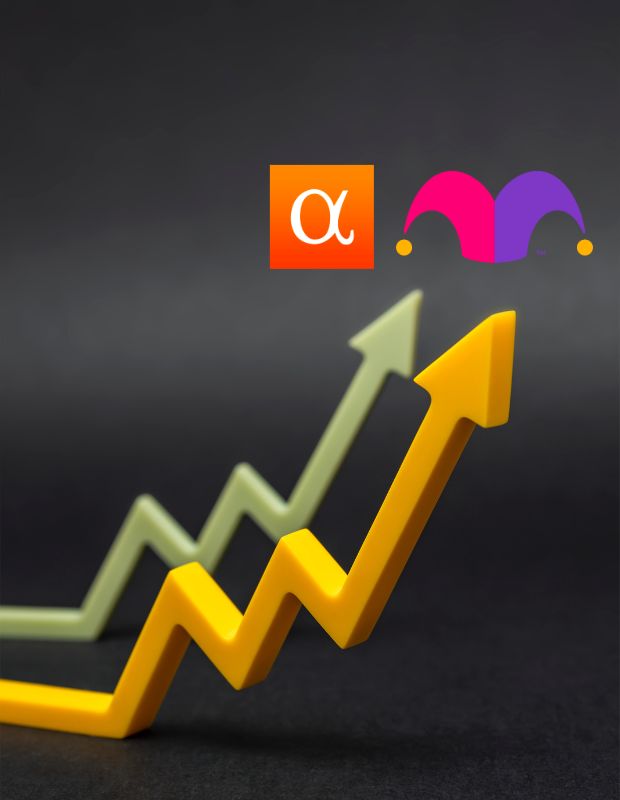
For investors on the hunt for reliable insights, platforms like Motley Fool and Seeking Alpha stand out in today’s fast-paced financial world.
Both offer valuable market advice, but which one aligns best with your needs? This article dives into a head-to-head comparison of Motley Fool versus Seeking Alpha. We’ll unpack their histories, features, pricing structures, and more. By the end, you’ll have a clearer perspective on which platform deserves your trust. Dive in to see how they match up!
Motley Fool and Seeking Alpha – History and Background:
Motley Fool
Motley Fool was founded in 1993 by Tom and David Gardner. When it started, the business was just a newsletter. However, it has grown to become one of the most trusted brands for investment advice. The organization plans to “make the world smarter, happier, and richer” by offering various services, such as stock recommendations, podcasts, and educational resources. Thanks to its long history and infallible achievements, the Motley Fool has become one of the go-to platforms for actionable and reliable investment advice.
Seeking Alpha
Founded by a former technology analyst in 2004, Seeking Alpha is a comprehensive financial platform that offers several services, such as stock market analysis, investment opinions from professionals, and financial news. Unlike the Motley Fool, a platform that focuses on providing stock recommendations, Seeking Alpha provides a more dynamic content selection. The platform allows investors to access insights and analysis from various perspectives.

Features and Services:
Now that you know the history of these platforms, here are the features and services they offer.
Stock Recommendations
The stock recommendation is one of the main reasons people look for financial platforms, such as Motley Fool and Seeking Alpha. While both platforms offer this service, they have different approaches. Here is how these platforms offer this service.
Motley Fool
Motley Fool is popular for its stock-picking services. It focuses on long-term growth opportunities. Their most well-known service is the Stock Advisor. This service provides subscribers with monthly stock recommendations directly from the Gardner brothers. It also comes with in-depth analysis and research to support their selections. For the longest time, Motley Fool’s picks have done better than the S&P 500, which has garnered the attention of investors who are looking for guidance on which stocks to buy.
Seeking Alpha
Seeking Alpha takes another approach to stock recommendations. The platform relies on a diverse group of independent contributors to provide analysis and opinions. This method provides a broader range of perspectives. However, this approach can be beneficial or disadvantageous. Seeking Alpha provides a plethora of rich information and insights from multiple credible sources. However, the quality and reliability of these selections vary significantly. So, to deal with it, Seeking Alpha offers a “Marketplace,” a feature that provides you with premium services from top contributors. These contributors let you in on their own stock picks and investment strategies. However, you have to subscribe to this service.

Research Tools and Analysis:
If you are an investor who enjoys looking at financial data and analysis before going into stock trading or other ventures, then you’ll enjoy either Motley Fool or Seeking Alpha. They both offer a range of research tools to help you make informed decisions.
Motley Fool
Most people know Motley Fool for its stock recommendations. Nevertheless, the platform also offers many research tools and resources to help you make smart investment decisions. You can find some tools such as a stock screener, access to company reports, and an earnings calendar. Furthermore, you can find educational content and podcasts covering various topics and strategies for investments.
Seeking Alpha
Research tools and analysis is a field that Seeking Alpha excels at. On the platform, you can find features such as stock screeners, earnings calendars, and portfolio trackers. Seeking Alpha offers access to transcripts of earnings calls, financial statements, and SEC filings, which makes it perfect for in-depth research. Seeking Alpha appeals to various investors with diverse strategies and interests thanks to its vast array of content ranging from stocks to ETFs and other investment vehicles.
Community Engagement:
Another feature both platforms have is community engagement, which allows users to interact with one another and exchange ideas.
Motley Fool
Motley Fool has a section called the “Fool Community.” This community allows subscribers to discuss financial topics, such as investment strategies and stocks. In this community, that’s not unlike communities for writers, investors get to learn from one another and share insights, which allows for a better investing experience.
Seeking Alpha
On Seeking Alpha, you can engage with the community through article comment sections or stock forums. Using these features, users can discuss, ask questions, and share ideas on investment topics. You can also rate and follow your favorite authors on the platform, which creates a connection between you and them.
Pricing:
Pricing plays a vital role when deciding what platform to use. Here are the pricing structures for Motley Fool and Seeking Alpha.
Motley Fool
Motley Fool compared to Seeking Alpha has more affordable pricing. The platform offers different subscription-based services. Their flagship product, Stock Advisor, costs $199 yearly. You can also find other premium services, like Rule Breakers and Rule Your Retirement, which have different pricing structures. Also, keep in mind that Motley Fool typically has discounts and promotions, so you get a chance to subscribe at a lower price.
Seeking Alpha
One standout feature of Seeking Alpha is its freemium model. This model allows you to use a lot of content and tools on the platform for free. If you want premium features, you have to opt for Seeking Alpha Premium, which costs $29.99 monthly or $239.88 yearly. In addition, you can also make use of the more advanced plan called the Seeking Alpha PRO. It costs $199.99 monthly or $1,999.88 yearly and works best for professional investors. Lastly, The Marketplace services that provide information from individual contributors have their pricing structure that varies based on the service type.

Pros and Cons:
Both platforms have their advantages and disadvantages. Here are some pros and cons of both platforms.
Motley Fool
Pros
- A track record of recommending stocks that have outperformed the market.
- Access to numerous research tools and academic resources
- Focuses on long-term growth prospects
- Interactive community to gain knowledge and share ideas
Cons
- The Gardner brothers’ opinions and analysis may not work for all investors.
- Limited free content
Seeking Alpha
Pros
- Numerous financial perspectives from a large number of individuals
- Access to a plethora of research tools and financial data
- A free model with abundant free content
- An interactive community for engagement and discussions with other users
Cons
- Because of the multiplicity of contributors, the quality and dependability of stock recommendations are inconsistent.
- Pricey premium services, such as the PRO subscription
Which Platform is Right for You?
The decision between Motley Fool and Seeking Alpha ultimately hinges on your personal preferences and investment strategy. If you’re searching for a platform with a solid track record of stock recommendations and a concentration on long-term growth, Motley Fool may be for you. If you prefer diverse viewpoints, extensive research tools, and free content, Seeking Alpha may be a better choice for you.
Conclusion
Ultimately, both platforms have benefits and drawbacks, so it might be a good idea to pool their resources to develop a well-rounded investment strategy. Regardless of the platform you use, you should always conduct in-depth research, consider several opinions, and make investments in line with your financial goals and risk tolerance. To find more content like this, be sure to visit the rest of my website.
Get your free PDF report: Download your guide to 100+ AI marketing tools and learn how to thrive as a marketer in the digital era.
Hey there, welcome to my blog! I'm a full-time entrepreneur building two companies, a digital marketer, and a content creator with 10+ years of experience. I started RafalReyzer.com to provide you with great tools and strategies you can use to become a proficient digital marketer and achieve freedom through online creativity. My site is a one-stop shop for digital marketers, and content enthusiasts who want to be independent, earn more money, and create beautiful things. Explore my journey here, and don't miss out on my AI Marketing Mastery online course.


